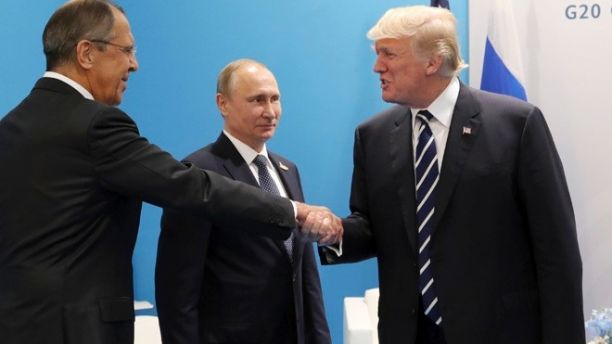The US has reached its first “de-escalation agreement” with Russia in Syria’s 76-month conflict.
Washington, which had rejected protected zones for Syrians since 2012, indicated earlier this week that it would implement the agreement if Moscow consented. Jordan also joined the announcement of a ceasefire for southwest Syria, beginning at noon local time (0900 GMT) on Sunday.
The plan was declared after a meeting between Donald Trump and Russian President Vladimir Putin at the G20 summit in Hamburg, Germany. Trump also said that Russia’s interference in the 2016 US Presidential election should be put aside — and may even have agreed with Putin’s assertion that the intervention on Trump’s behalf, confirmed by US intelligence agencies, never took place.
US Secretary of State Rex Tillerson proclaimed, “I think this is our first indication of the US and Russia being able to work together in Syria, and as a result of that we had a very lengthy discussion regarding other areas in Syria that we can continue to work together on to de-escalate the areas.”
An essential backer of the Assad regime, Moscow had worked with the US on a supposed political process after the regime’s August 2013 chemical attacks near Damascus, killing more than 1,400 people. However, after large-scale military intervention in September 2015, Russia set aside the Americans in summer 2016, preferring to work instead with Turkey and Iran.
A State Department official maintained on Friday, “[This] “is a first step in what we envision to be a more complex and robust ceasefire arrangement and de-escalation arrangement in southwest Syria, certainly more complex than ones we have tried in the past.”
The Assad regime has not reacted to Friday’s announcement. Rebels who have taken part in talks in Astana, Kazakhstan said they had “great concern over the secret meetings between Russia and Jordan and America to conclude an individual deal for southern Syria in isolation from the north”.
The Syrian opposition has been sceptical about four de-escalation zones declared by Russia, accompanied by Turkey and Iran, in early May: it maintains that Russia cannot be relied upon to rein in the regime and that Tehran — which leads pro-Assad forces on the ground — is not a trustworthy guarantor.
Russian Foreign Minister Sergei Lavrov said the accord includes “securing humanitarian access and setting up contacts between the opposition in the region and a monitoring center that is being established in Jordan’s capital”.
The US, France, Britain, Jordan, and Saudi Arabia have had a Military Operations Center in Amman which has provided limited support to rebels since 2012, but aid has been scaled back since 2015, in part to prevent a sudden collapse of the Assad regime.
Tillerson insisted that, despite Friday’s deal, the US still sees “no long-term role for the Assad family or the Assad regime. And we have made this clear to everyone. We certainly made it clear in our discussions with Russia.”

